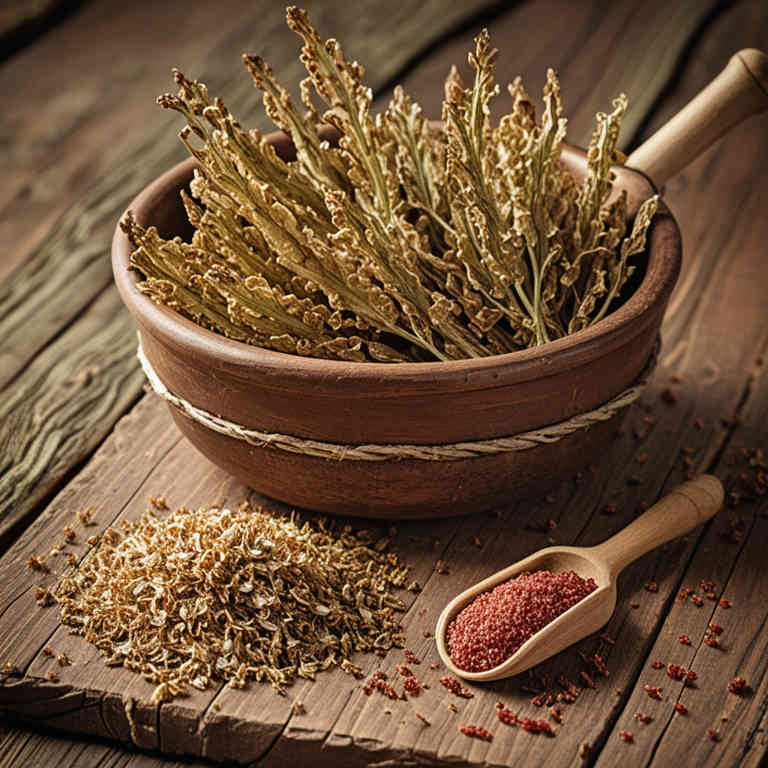Rumex crispus mucillage for medicinal use

Rumex crispus mucillage is a viscous, gel-like substance extracted from the leaves of the Rumex crispus plant, commonly known as curly dock.
This preparation is rich in mucilage, a type of soluble fiber that has soothing and demulcent properties. In herbalism, it is used to coat and protect irritated mucous membranes in the digestive tract. It is often employed to alleviate symptoms of conditions like gastritis, ulcers, and inflammatory bowel disorders.
Additionally, it may support digestive health by promoting regularity and reducing inflammation.
Uses
Rumex crispus mucillage has been used to treat digestive ailments and skin conditions for centuries.
Historically, it was valued by ancient civilizations such as the Greeks and Romans for its soothing properties and was often applied topically to wounds and rashes. In traditional herbal medicine, it was also used to alleviate symptoms of respiratory issues and as a mild laxative. Modern research has begun to explore its potential anti-inflammatory and antimicrobial properties, leading to renewed interest in its therapeutic applications.
Today, it is sometimes used in complementary medicine to support gut health and as a natural remedy for minor skin irritations.
Benefits
Rumex crispus mucillage has health benefits such as promoting digestive health, reducing inflammation, and supporting urinary tract function.
It is known for its mild laxative properties, which can help alleviate constipation and improve overall gastrointestinal motility. The mucilage in this preparation also acts as a protective coating for the lining of the digestive tract, potentially soothing irritation and promoting healing. Additionally, it may aid in detoxification processes by supporting the body's natural elimination of toxins.
Due to its soothing and anti-inflammatory properties, Rumex crispus mucillage is often used in traditional medicine to address a variety of mild digestive and urinary ailments.
Constituents
Rumex crispus mucillage active constituents include mucilage, tannins, flavonoids, and various minerals such as calcium, magnesium, and iron.
The mucilage provides soothing and demulcent properties, making it useful for alleviating irritation in the digestive tract. Tannins contribute to astringent effects, which can help in reducing inflammation and bleeding. Flavonoids act as antioxidants, supporting overall health and reducing oxidative stress.
These components collectively make Rumex crispus mucilage beneficial for digestive health, wound healing, and as a mild astringent.
Preparation
To make Rumex crispus mucillage, begin by harvesting the fresh leaves of the plant, ensuring they are free from pesticides and contaminants.
Rinse the leaves thoroughly under running water and chop them into small pieces to increase surface area for extraction. Place the chopped leaves in a clean jar and cover them with a mixture of water and a small amount of honey or sugar to encourage the release of mucilage. Let the mixture steep for 24 to 48 hours at room temperature, stirring occasionally to promote the separation of the mucilage from the plant material.
After steeping, strain the liquid through a fine mesh or cheesecloth to collect the mucilage, which can then be used topically or internally as needed.
Side Effects
Rumex crispus mucillage may lead to gastrointestinal discomfort, including nausea, vomiting, and diarrhea, due to its high mucilage content.
The preparation is known for its demulcent properties, which can soothe irritated tissues in the digestive tract. However, excessive consumption may cause bloating or abdominal cramps. Long-term use might interfere with nutrient absorption, particularly of minerals like iron and zinc.
Individuals with known allergies to plants in the Polygonaceae family should avoid this preparation, as it may trigger allergic reactions.